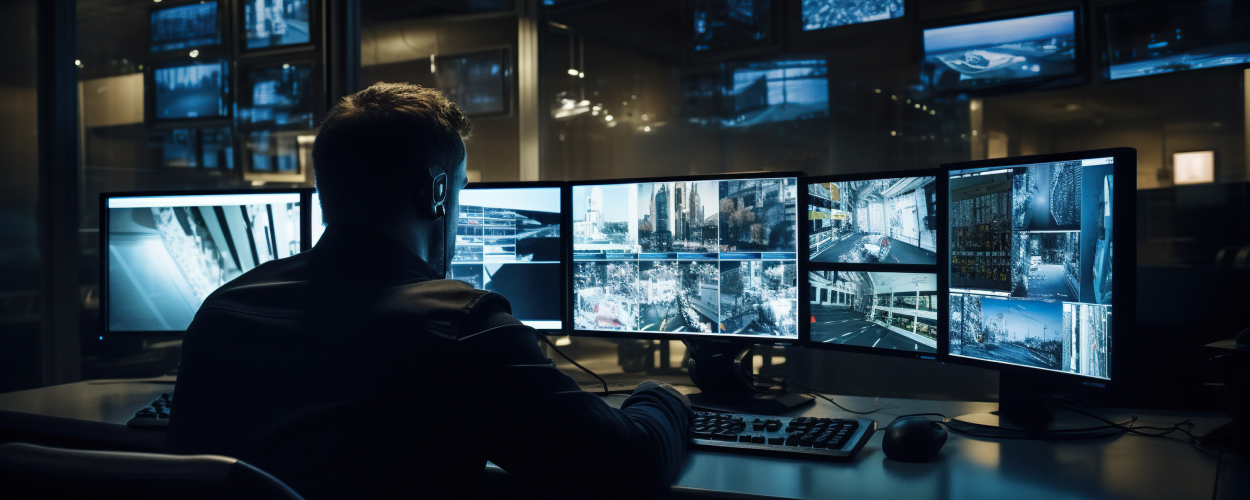In the realm of property management, security stands as a cornerstone, ensuring the well-being of tenants and the integrity of the properties you oversee. Navigating the complexities of property management security can be daunting, yet it is a critical aspect of your role as a property manager. From state-of-the-art technologies to foundational security practices, this guide delves into essential tips to elevate the security of your properties. As we explore these strategies, remember that enhancing security is a continual process, tailored to the unique needs of each property. By the end of this guide, you will be equipped with actionable insights to fortify your property management security efforts.
Tip 1: Invest in Advanced Security Systems
In today’s digital age, leveraging technology is paramount in enhancing property security. Consider implementing advanced security systems that include high-definition surveillance cameras, motion detectors, and access control systems. For instance, smart cameras can differentiate between routine activities and potential security breaches, sending real-time alerts to your mobile device.
Implementation:
- Assess Your Needs: Begin by evaluating the specific security requirements of your property. High-traffic areas, entry points, and common spaces should be your priority.
- Choose Integrated Systems: Opt for systems that offer seamless integration, allowing you to manage security features from a single platform.
- Professional Installation: Engage with reputable security companies for the installation and maintenance of your systems, ensuring they are optimized for your property’s layout.
Tip 2: Regular Security Audits
Conducting regular security audits is crucial to identify vulnerabilities and enhance your security protocols. These audits should assess all physical and digital security measures in place, examining their effectiveness and identifying areas for improvement.
Implementation:
- Schedule Regular Audits: Set a timetable for comprehensive audits, ideally twice a year, to ensure all security measures are up to date.
- Involve Professionals: Consider hiring security consultants for an unbiased review of your security infrastructure.
- Act on Findings: Promptly address any identified vulnerabilities, whether it involves updating technology or reinforcing physical security measures.
Tip 3: Effective Tenant Communication
Effective communication with your tenants can significantly enhance your property’s security. Educating tenants on security policies and encouraging their active participation can lead to a safer community.
Implementation:
- Welcome Packets: Include a section on security protocols and emergency contacts in your welcome materials for new tenants.
- Regular Meetings: Host periodic meetings to discuss security practices and gather feedback from tenants.
- Digital Platforms: Utilize email newsletters or community apps to keep tenants informed about security updates and reminders.
Tip 4: Implement Key Control Systems
Key control systems are essential for managing access to various areas of your property. These systems can range from traditional lock-and-key setups to digital access codes and key fobs.
Implementation:
- Audit Key Distribution: Regularly review who has access to what areas and ensure keys are returned by former tenants or employees.
- Upgrade to Digital Access: Consider digital keypads or smart locks that offer better control, tracking, and the ability to change access codes remotely.
- Key Recovery Plan: Have a plan in place for lost keys, including lock changes and notifying affected tenants.
Tip 5: Landscape and Lighting Design
The design of your property’s landscape and lighting can play a significant role in its overall security. Proper lighting and landscape design can deter potential intruders by reducing hiding spots and increasing visibility.
Implementation:
- Strategic Lighting: Install bright, motion-activated lights in entryways, pathways, and parking areas.
- Landscape Design: Keep shrubbery trimmed and remove potential hiding spots. Use thorny plants under windows for an added layer of security.
- Maintenance Plan: Regularly inspect and maintain lighting and landscape to ensure they continue to serve their security purpose.
In conclusion, property management security is not a static feature but a dynamic aspect of property management that requires ongoing attention and adaptation. By implementing these essential security tips, you are not only protecting your property but also enhancing the quality of life for your tenants. Remember, the safety of your properties is a testament to your commitment as a property manager. Let us take proactive steps together to ensure our communities are safe, secure, and thriving.
By prioritizing property management security from the outset and revisiting it regularly, you can create a robust framework that safeguards your properties, tenants, and reputation.
FAQ Section
Q: How often should security audits be conducted?
A: Security audits should be conducted at least twice a year or whenever significant changes to the property or its use occur.
Q: Can tenants participate in enhancing security?
A: Absolutely. Engaging tenants in security protocols and encouraging them to report suspicious activities can significantly enhance the security of your property.
Q: Are digital access systems preferable to traditional keys?
A: Digital access systems offer advantages in terms of control, tracking, and the ease of changing access permissions, making them a more secure and manageable option for many properties.
